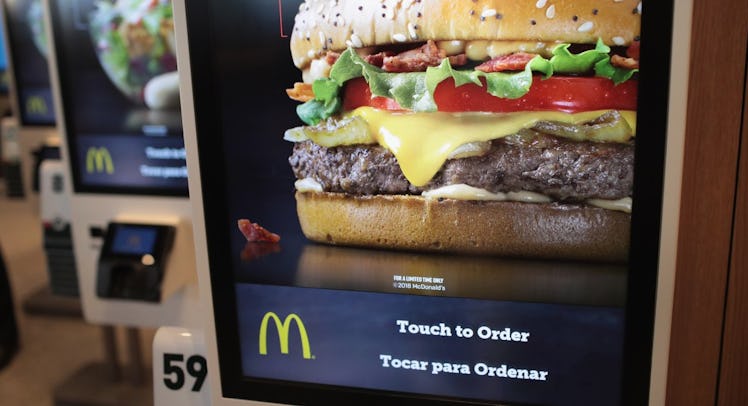Test Finds McDonald’s Touchscreens Are Covered in Fecal Bacteria
Another reason to wash your hands before eating.

The next time you stop at McDonald’s, you may want to skip the new self-order machines, as a recent study found fecal matter on every touchscreen tested at the fast food restaurant.
Conducted in November by U.K. newspaper Metro, the study swabbed screens at eight different McDonald’s locations in London and Birmingham. All of the self-order kiosks tested positive for an array of harmful bacteria.
“We were all surprised how much gut and fecal bacteria there was on the touchscreen machines,” Dr. Paul Matewele, senior microbiology lecturer at London Metropolitan University, told Metro. “These cause the kind of infections that people pick up in hospitals.”
One of the most concerning results was the presence of Staphylococcus, a bacteria that can cause toxic shock syndrome, pneumonia, and blood poisoning. “Seeing Staphylococcus on these machines is worrying because it is so contagious. There is a lot of worries at the moment that staphylococcus is becoming resistant to antibiotics,” Dr. Matewele said to the paper, explaining that the infection can be very dangerous if it gets into an open cut.
Metro also found Proteus on about 75 percent of the machines. Dr. Matewele noted that this bacteria is “found in human and animal feces… It can cause urinary tract infections and is also one of the hospital-acquired infections where it may responsible for septicemia.”
Other bacteria discovered on the touchscreens included listeria, which can lead to miscarriages in pregnant women, and Klebsiella, which is associated with urinary tract infections.
Despite Metro’s findings, McDonald’s defended itself with a statement to the paper explaining, “Our self-order screens are cleaned frequently throughout the day with a sanitizer solution.” The spokesperson added that “all of our restaurants also provide facilities for customers to wash their hands before eating.”
This article was originally published on